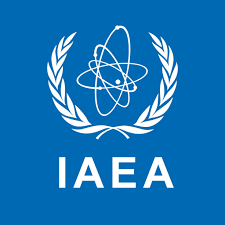High quality health care is one of the most important development goals in the Republic of Serbia. Radiation therapy is used for treatment of all types of cancer, but also other conditions. Accurate dose measurements in radiation therapy departments are one of the key prerequisites for successful therapy, improving the survival rate, life expectancy and quality of life of cancer patients. At present there is a limited capacity in the country related to the calibrations in external beam therapy and lack of any calibration capacities related to radionuclide metrology in hospitals. Secondary Standards Dosimetry Laboratory of Vinca Institute of Nuclear Sciences is responsible for disseminating the dosimetric units to hospitals, providing calibrations for different types of equipment. This is only possible through continuous improvement and maintenance of calibrations services. In this project, special attention will be given to calibration service for external beam radiotherapy related to the advanced radiotherapy techniques. Technical and human capacities of the laboratory will be improved to establish new and improve existing services, giving radiotherapy centres a reliable link to International Measurement System. In addition to the improved external beam radiotherapy calibrations, brachytherapy calibration service will be established, providing traceability to hospitals and ensuring high quality of the therapy. Additional effort will be invested in training of hospital medical physicists and improvement of quality assurance and quality control procedures, with the goal to improve the measurement procedures in hospitals and to improve the chance that any errors would be spotted in a timely manner. Radiation safety related to the use of radiation sources will also be improved, both in hospitals and Secondary Standards Dosimetry Laboratory, by establishing calibration service for surface contamination monitors, which is currently non-existent in the region. The project will strengthen the overall use of nuclear technologies in the health care.
Institut "Vinča"
- About Institute
- Science
- Inovations
- Documents
- Contact
- Industry
- Education
- Publication Repository
- Intranet
- Webmail
Strengthening Calibration Services at the Secondary Standard Dosimetry Laboratory for Radiotherapy Applications
- Category: International projects
Acronym / code:
SRB6016


Project type:
IAEA Technical Cooperation
Realization period:
januar 2022 - decembar 2023.
Project funded by:
IAEA
SRO project holder:
Institut za nuklearne nauke „Vinča“
- IAEA
Principal investigator:
Miloš Živanović, Viši naučni saradnik
There is no part or complete translation available for this page. Close this dialogue to see the original text.
- Researchers included into project: Andrea Kojić, Viši stručni saradnikNikola Kržanović, Naučni saradnikSrboljub Stanković, Viši naučni saradnik



